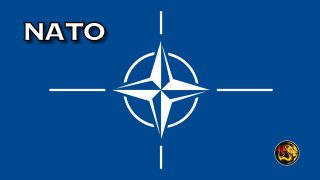
By Stefan J. Bos, Chief International Correspondent Worthy News
BUDAPEST (Worthy News) – Swedish Prime Minister Ulf Kristersson was on his way for talks in Budapest on Friday amid mounting pressure on Hungary to vote for Sweden’s membership of the NATO military alliance.
Hungary is the only one of NATO’s 31 existing members not to have ratified the Nordic nation’s bid due to anger over Sweden’s criticism of the Hungarian leadership’s perceived authoritarian style.
It also has reservations about Dutch Prime Minister Mark Rutte becoming the new NATO secretary general, despite most countries, including the United States, backing him.
Last week, the government even refused to meet a bipartisan delegation of U.S. senators in Budapest, where they urged Hungary to approve Sweden’s request to join NATO.
Viktor Orbán, the powerful Hungarian prime minister, faces mounting pressure to act after delaying the move for more than 18 months since admitting a new country to the military alliance requires unanimous approval.
The visiting senators warned they would submit a joint resolution to Congress condemning alleged democratic backsliding in Hungary and urging the government of Orbán to lift its block on Sweden’s trans-Atlantic integration.
“With accession, Hungary and your prime minister will be doing a great service to freedom-loving nations worldwide,” Senator Thom Tillis, a North Carolina Republican, said in Budapest.
ESSENTIAL ALLY
Sweden is seen as an essential ally as NATO seeks further expansion after Russia invaded Ukraine some two years ago.
With pressure mounting, Orbán appeared to have relented, saying he advised Parliament to vote for accession on Monday.
His Swedish counterpart’s arrival on Friday, just a weekend shy of the eventual vote, was more seen as a face-saving photo opportunity for Orbán.
Sweden has made clear it won’t back down on its views on respecting democratic norms but was ready to discuss security arrangements with Hungary.
It was also a way for Orbán to take away attention from ongoing protests against the state’s handling of child protection after the resignation of the country’s president.
Katalin Novák, Hungary’s first female president, stepped down this month after it emerged that she had given a pardon to the vice director of an orphanage involved in covering up the sexual abuse of children by the institution’s director.
Another woman, Judit Varga, a former justice minister who countersigned the pardon last year, also resigned as a legislator.
The governing party suggested Tamás Sulyok, the current head of the Constitutional Court, for head of state with a vote expected as early as next week.
Copyright 1999-2026 Worthy News. This article was originally published on Worthy News and was reproduced with permission.
Latest News from Worthy News
The Trump administration has finalized a sweeping reciprocal trade agreement with Taiwan, confirming a 15 percent U.S. tariff rate on Taiwanese imports while securing broad new market access and purchase commitments for American goods.
Democrats are applauding White House border czar Tom Homan’s Thursday announcement that immigration enforcement operation in Minnesota will end next week.
Democrats in the U.S. Senate tanked the Homeland Security full-year funding bill in a last-ditch vote Thursday, all but guaranteeing a partial government shutdown starting Saturday.
Mourners in a remote Canadian town grappled Thursday with the aftermath of one of the country’s deadliest school shootings in decades, as families, survivors and leaders reacted to the tragedy that left eight victims — most of them children — dead, along with the 18-year-old suspect.
A gunman who opened fire at a school in southern Thailand’s Hat Yai city on Wednesday wounded a teacher and a student before being detained, authorities said, in a rare attack that sent students and staff into panic.
The Republican-led House of Representatives has passed the Safeguard American Voter Eligibility (SAVE) America Act, advancing legislation that would require proof of citizenship to register to vote and photo identification at the polls. The bill now heads to the Senate, where its future remains uncertain amid strong Democratic opposition.
Israel’s Ministry of Defense announced on Wednesday that its advanced David’s Sling air and missile defense system has completed a series of complex modernized tests, a development officials say bolsters the country’s defensive posture as tensions with Iran escalate and the United States prepares military options that could include direct strikes.







